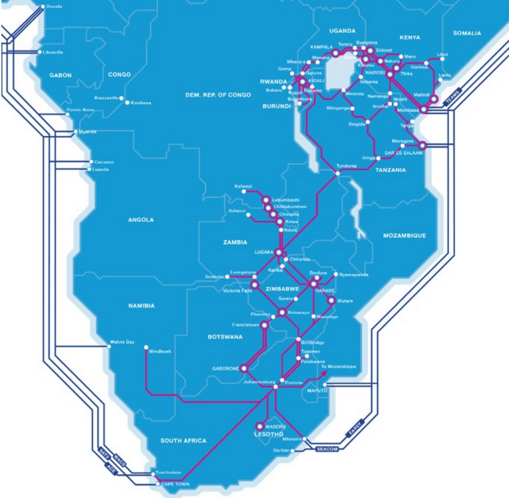Dec 16, 2015 it was reported that Liquid Sea, a wholly-owned subsidiary of Liquid Telecom, has started a project to build a new subsea cable linking Africa to the Middle East with onwards connectivity to Europe. Liquid Sea will offer speeds of 20-30-Tbps, up to 10 times the capacity of existing submarine cables in the region, Liquid Telecom said in a statement.
Liquid Sea, a wholly-owned subsidiary of Liquid Telecom, has started a project to build a new subsea cable linking Africa to the Middle East with onwards connectivity to Europe.
Liquid Telecom Group CEO Nic Rudnick confirmed that a Request for Tender has been issued to international companies involved in the construction of submarine cables. Liquid Telecom is an independent data, voice and IP provider for eastern, central and southern Africa.
The Liquid Sea cable will run 10,000 km from South Africa to the Middle East. It will be connected to Liquid Telecom's pan-African terrestrial network, connecting landlocked and coastal countries in Eastern, Central and Southern Africa. The project is already fully funded and is estimated to take two years to complete.
Liquid Sea will offer speeds of 20-30-Tbps, up to 10 times the capacity of existing submarine cables in the region, Liquid Telecom said in a statement.
The new submarine cable is expected to directly connect all coastal countries along the east coast of Africa and to provide new connectivity to the Middle-East and Europe. The project will include landing stations in several ports that are currently not served by existing subsea cables. It will also leverage Liquid Telecom's extensive terrestrial fibre network, to provide onward connectivity to landlocked countries on the continent.
Liquid Telecom's open access network is the largest single-fibre network on the African continent, stretching over 20,000 km and including a fully redundant ring network in East Africa, connecting many of Africa's fastest-growing economies (see red lines on map).
Its network connects to the five main existing sub-sea cable systems - WACS, EASSy, SEACOM, SAT 3 and TEAMS (see blue lines on map). The company operates in Botswana, Democratic Republic of Congo, Kenya, Lesotho, Mauritius, Nigeria, Rwanda, South Africa, Uganda, Zambia, Zimbabwe and the UK under a number of different wholesale, enterprise and retail brands.
Measuring impact
There is an interesting article in the Huffington Post on A Giant Leap in 2016? Africa Is Narrowing its Techno-Gap that mentions PingER and using it to measure the impact of the cable when it goes into service in 2018.
